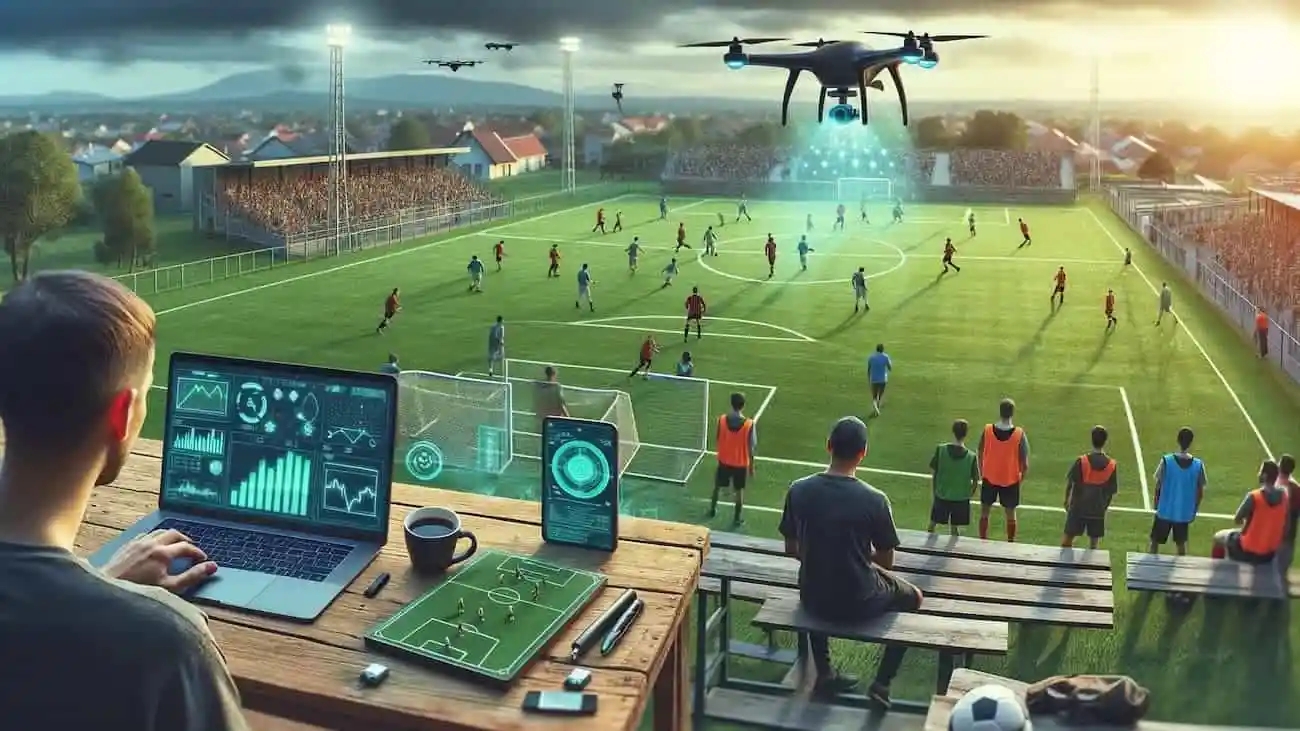AI IN AMATEUR SPORTS?
Thiago Calderaro
How will Artificial Intelligence (AI) influence grassroots sports, which tend to be rather conservative? AI opens up innovative pathways for training, game analysis, and fan engagement. SportTech startups, with their technologies, are the driving force. They enrich not just coaching but also have the potential to sustainably shape the landscape of amateur sports.
The Role of AI in Modern Sports Coaching
The digital transformation in sports has led to a data explosion that exceeds human comprehension. AI tools step in to provide coaches, athletes, and players with valuable data-driven insights. They can process vast amounts of information and generate individually tailored training plans that cater to the specific needs and abilities of athletes. Strategically, AI enables profound analysis of plays and tactics. By evaluating scenarios and anticipating opponent strategies, coaches can sharpen their tactics and prepare the team optimally for competition. Real-time data capture during games also offers the ability to quickly respond to developments and adjust tactics.
But how can the data be collected? The most commonly used methods currently are via video recordings or chips worn by the athletes. Tools such as Veo (video camera/analysis), Kinexon (data tracking/analysis), and Coachwhisperer (live communication) should be mentioned here.
A Data-Based Coach Evaluation
What are coaches primarily measured by? The result. However, in the youth sector, this often comes at the expense of individual development of children and teenagers. If youth coaches have to be careful not to be relegated, lest they lose their jobs, they will less often take the risk of giving enough playtime to those who are behind. The consequence is that more children and teenagers quit playing football. The German Football Association (DFB) is trying to counteract this at a structural level with the new reform for kids' and youth football. Thus, the teams of the A- and B-Juniors Bundesliga can no longer be relegated from the new season. Kids' football is even going into a new era with the Funino game mode. However, whether the reform is sufficient to change the mindset of youth coaches and trainers will only be shown in a few years. The goal must be to focus more on the individual development of the players.
With the help of data capture and AI, a new level is created to evaluate the quality of coaches' work. This means that the sports management of a club defines which sports parameters are valued in the various age groups. Do you want to play possession football? How should the team behave after losing the ball? Does the team concede too many goals after the turnover? Should it be combined through the centre, or is more value placed on a strong offensive 1v1 on the wing? Etc. Etc. The data collected from the games over the season can be used to assess the development of each individual athlete. Now it can be evaluated based on data whether the coaches have advanced the team sportingly and whether they have let football be played according to the club's philosophy. Were the training goals achieved or was the team successful only due to physical superiority?
The Impact of AI on the Fan Experience
AI will also help personalize the spectator experience. Personalized content and recommendations, interactive experiences through AR, and personalized sales promotions increase fan engagement and satisfaction. This leads to a more intense fan connection and opens up new revenue channels for sports organizations.
Video Preview: Fifa+ AR Stadium Experience
For example, DAZN uses collected data to understand whether users had a positive experience and where improvements are needed. DAZN analyzes these user data to identify preferences and interests, which should lead to improved personalization and a deeper understanding of fans.
Outlook on AI Innovations in Sports
Sports face a significant change through live translation AI, which will integrate international talents more efficiently and overcome communication barriers. These innovations promise an even more global and inclusive world of sports. Football clubs and associations must invest in digital competencies to fully exploit such tools.
Sources
1. https://coachwhisperer.de/de/ai-tools-in-sports/
Continue Reading
This might also interest you:







